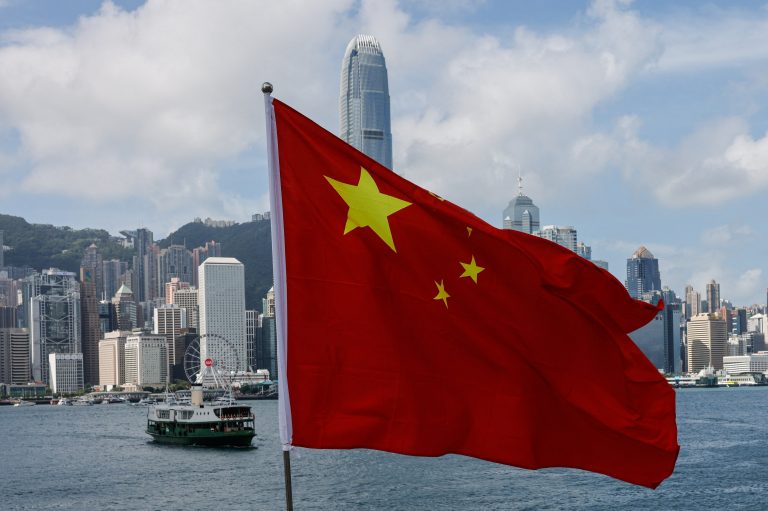
President Donald Trump’s Second Term: A Vision of Economic Nationalism and Executive Action
Donald Trump’s second inaugural address set the tone for what promises to be a bold, controversial, and transformative presidency. With a pledge to usher in the “golden age of America,” Trump outlined his vision of a flourishing nation, driven by economic nationalism, strong border policies, and a return to energy dominance. His rhetoric struck a familiar chord for his supporters while signaling a continuation of his “America First” agenda.
This article examines the key themes of Trump’s inaugural address, the policy measures he has promised, and what they mean for the United States and the world.
“The Golden Age of America Begins Right Now”
Trump’s message was one of revitalization and strength. He declared that his administration would make America the “envy of the world” by focusing on domestic prosperity and protecting U.S. interests. Central to this vision are measures aimed at reshaping the U.S. economy, securing the country’s borders, and reasserting American sovereignty on the global stage.
Trump’s claim that the U.S. would “not be taken advantage of” underscored his longstanding criticism of trade deals, foreign alliances, and immigration policies that he believes have undermined American strength. His rhetoric evoked themes of protectionism and self-reliance, setting the stage for sweeping policy shifts.
Key Executive Actions: A Bold Start
In his inaugural address, Trump vowed to immediately sign a series of executive orders targeting immigration, energy, and trade. These actions reflect his determination to bypass legislative gridlock and implement his agenda swiftly.
1. Immigration and the Southern Border
One of Trump’s most controversial promises is the declaration of a “national emergency” at the southern border. He pledged to halt immigration and prioritize the deportation of “criminal immigrants” at an unprecedented scale.
Trump’s hardline stance on immigration is a cornerstone of his presidency. By framing immigration as a matter of national security and economic stability, he aims to mobilize federal resources to bolster border enforcement. However, critics argue that such measures risk exacerbating humanitarian crises and alienating immigrant communities.
2. Energy Independence and Environmental Rollbacks
Another national emergency Trump plans to declare is an “energy emergency,” signaling a dramatic shift in U.S. energy policy. He announced his intention to rescind the Green New Deal and the electric vehicle mandate, calling these policies detrimental to American energy independence.
Trump’s approach prioritizes expanded drilling, coal production, and traditional energy sources over renewable energy initiatives. His administration is likely to reduce environmental regulations, arguing that such measures will lower energy costs, create jobs, and reduce reliance on foreign energy sources.
3. Trade and Tariffs
Trump’s economic vision includes the creation of an “External Revenue Service,” a mechanism to impose tariffs on foreign goods. He has consistently argued that tariffs protect American industries and workers from unfair competition.
While Trump touts tariffs as a tool to build U.S. prosperity, they come with risks, including higher consumer prices and potential trade wars. The challenge will be balancing these measures with maintaining stable relationships with key trading partners.
Economic Implications: A Mixed Bag
Trump’s economic policies reflect his belief in protectionism and economic nationalism. However, the potential consequences of his proposals have sparked debate among economists and policymakers.
Pros:
•Domestic Job Creation: Tariffs and energy expansion could incentivize domestic production and create jobs in manufacturing and energy sectors.
•Strengthened Energy Sector: Rescinding renewable energy mandates could lower costs for traditional energy producers and make the U.S. more energy independent.
•Reduced Competition for American Workers: Immigration restrictions may alleviate wage pressure for low-skilled labor.
Cons:
•Higher Consumer Prices: Tariffs on foreign goods could lead to price increases, affecting middle- and lower-income households disproportionately.
•Trade Retaliation: Foreign countries may impose counter-tariffs, harming U.S. exporters.
•Environmental Concerns: Rolling back renewable energy initiatives could hinder progress on climate change and damage global environmental cooperation.
Domestic and International Reactions
Trump’s policies are likely to polarize public opinion domestically and strain relationships with U.S. allies abroad.
Domestic Response:
Trump’s base views his promises as a fulfillment of campaign pledges, rallying around his focus on American jobs, energy, and security. However, Democrats, environmentalists, and immigrant advocacy groups are expected to mount strong opposition, framing his policies as regressive and divisive.
International Implications:
•Trade Tensions: Countries like China, Canada, and the European Union are expected to push back against tariffs, potentially leading to economic retaliation.
•Energy Competition: Trump’s energy policies may disrupt global energy markets, especially if the U.S. increases oil and gas exports.
•Strained Alliances: The emphasis on “America First” could alienate allies and complicate cooperation on global challenges, such as climate change and trade reform.
Challenges Ahead
Trump’s ambitious agenda faces significant hurdles. Legal challenges to his executive actions are almost inevitable, particularly in areas like immigration and environmental rollbacks. Moreover, his policies may face resistance from Congress, even within the Republican Party, where moderates may balk at the economic and diplomatic risks of tariffs and isolationist measures.
On the international stage, Trump will need to navigate complex relationships with allies and adversaries while maintaining his commitment to domestic priorities. The success of his policies will depend on his administration’s ability to balance short-term gains with long-term stability.
Conclusion
President Trump’s inaugural address offered a glimpse into the bold, controversial policies that will define his second term. His promises to protect American interests through tariffs, energy expansion, and immigration crackdowns reflect his commitment to an “America First” vision.
While his supporters see these measures as a pathway to prosperity and strength, critics warn of economic disruptions, environmental setbacks, and strained international relations. The coming months will reveal whether Trump’s policies can deliver the “golden age of America” he envisions—or whether they will deepen the divisions and challenges facing the nation.
Dr. Brian O. Reuben is the Executive Chairman of The Sixteenth Council.



